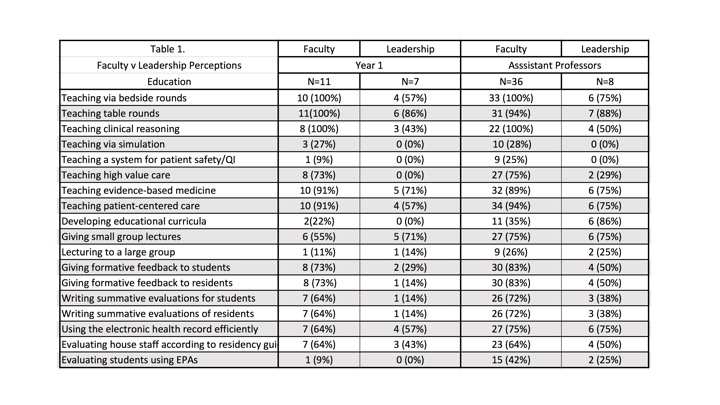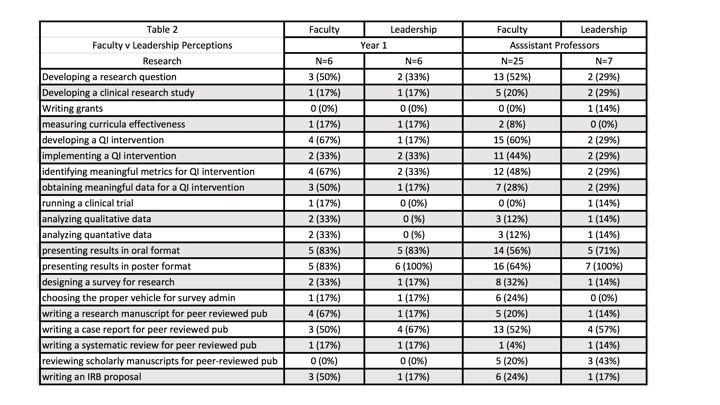Background: Traditionally, academic medicine has had a trifold mission of education, research, and patient care, in which education and research were paramount. However, in many institutions, patient care is now the large single wheel, and education and research are smaller, crucial secondary wheels (1). Likewise, residency education emphasizes clinical care. Accordingly, new academic hospital medicine (HM) faculty are often underprepared for the scholarly demands of their position.
We sought to better understand where both faculty and leaders felt there were deficiencies in either or both educational and research competencies.
Methods: We identified the various academic domains in which faculty in our institution are expected to excel. We asked faculty to rate their self-efficacy in educational and research areas identified. We also surveyed academic leadership as to their perspectives on Hospital Medicine junior faculty preparedness for academia. We then looked at areas of mismatch between self-assessment and perceived efficacy.
We therefore identified multiple tasks that were expected of faculty members in the department of hospital medicine, as well as reviewed competencies expected of faculty from academic literature (2) and created a survey of these tasks. This was then circulated to members of our hospitalist group, as well as to the Program Director of Internal Medicine, the core and sub-intern clerkship directors for internal medicine, and division leaders.
We analyzed both first year faculty specifically and assistant professors in the Division of Hospital Medicine.
Results: While this pilot study was not intended to reach statistical significance, first year HM faculty overall and assistant professors generally overrated their skills in the educational arena when compared to leadership perceptions. This was especially true with regard to giving feedback to students and house staff and writing summative evaluations (Table 1).
Evaluations of leadership were generally more congruent with those of both first year faculty and assistant professors overall in the research arena (Table 2). In this arena, faculty self-evaluations reflected a concerning lack of confidence in or exposure to research methodology.
Conclusions: First year faculty generally overestimate their teaching skills and evaluation abilities. This mismatch persists with assistant professors overall. Both first year faculty and assistant professors recognize deficiencies in their research skills. These findings provide a framework for targeted faculty development to address needed gaps in skills and improve the academic output of the faculty.


